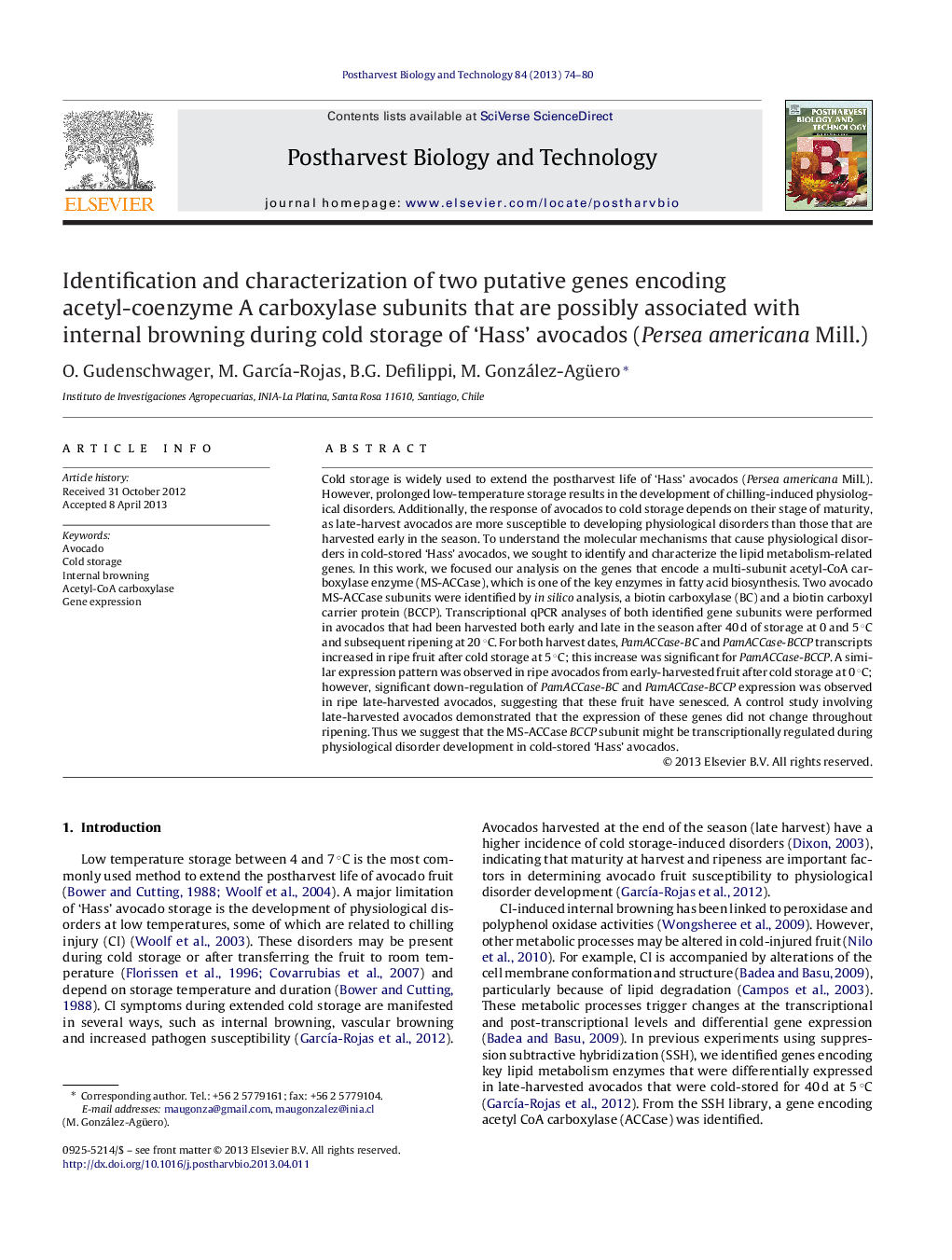| Article ID | Journal | Published Year | Pages | File Type |
|---|---|---|---|---|
| 4518384 | Postharvest Biology and Technology | 2013 | 7 Pages |
•Two genes encoding ACCase subunits have been identified and characterized in avocado.•PamACCase-BCCP may play an important role in fatty acid biosynthesis in avocado fruit.•PamACCase-BCCP could be related to physiological disorders in cold-stored avocados.
Cold storage is widely used to extend the postharvest life of ‘Hass’ avocados (Persea americana Mill.). However, prolonged low-temperature storage results in the development of chilling-induced physiological disorders. Additionally, the response of avocados to cold storage depends on their stage of maturity, as late-harvest avocados are more susceptible to developing physiological disorders than those that are harvested early in the season. To understand the molecular mechanisms that cause physiological disorders in cold-stored ‘Hass’ avocados, we sought to identify and characterize the lipid metabolism-related genes. In this work, we focused our analysis on the genes that encode a multi-subunit acetyl-CoA carboxylase enzyme (MS-ACCase), which is one of the key enzymes in fatty acid biosynthesis. Two avocado MS-ACCase subunits were identified by in silico analysis, a biotin carboxylase (BC) and a biotin carboxyl carrier protein (BCCP). Transcriptional qPCR analyses of both identified gene subunits were performed in avocados that had been harvested both early and late in the season after 40 d of storage at 0 and 5 °C and subsequent ripening at 20 °C. For both harvest dates, PamACCase-BC and PamACCase-BCCP transcripts increased in ripe fruit after cold storage at 5 °C; this increase was significant for PamACCase-BCCP. A similar expression pattern was observed in ripe avocados from early-harvested fruit after cold storage at 0 °C; however, significant down-regulation of PamACCase-BC and PamACCase-BCCP expression was observed in ripe late-harvested avocados, suggesting that these fruit have senesced. A control study involving late-harvested avocados demonstrated that the expression of these genes did not change throughout ripening. Thus we suggest that the MS-ACCase BCCP subunit might be transcriptionally regulated during physiological disorder development in cold-stored ‘Hass’ avocados.
